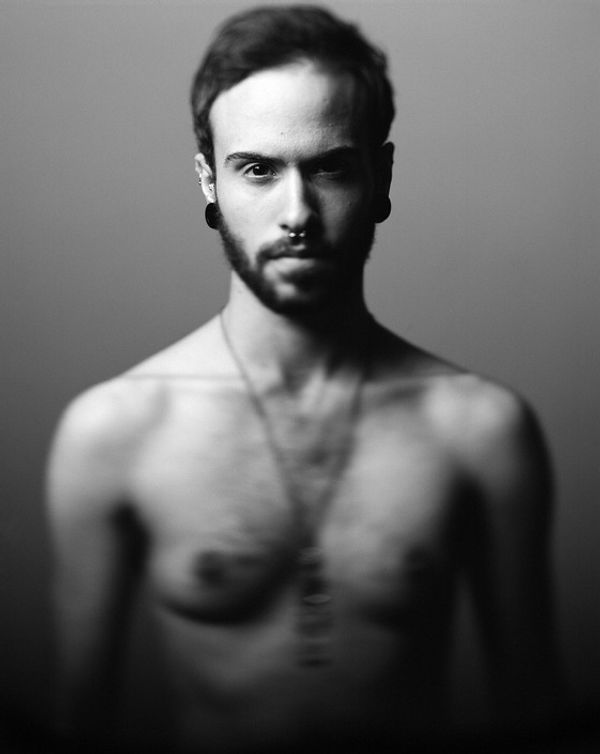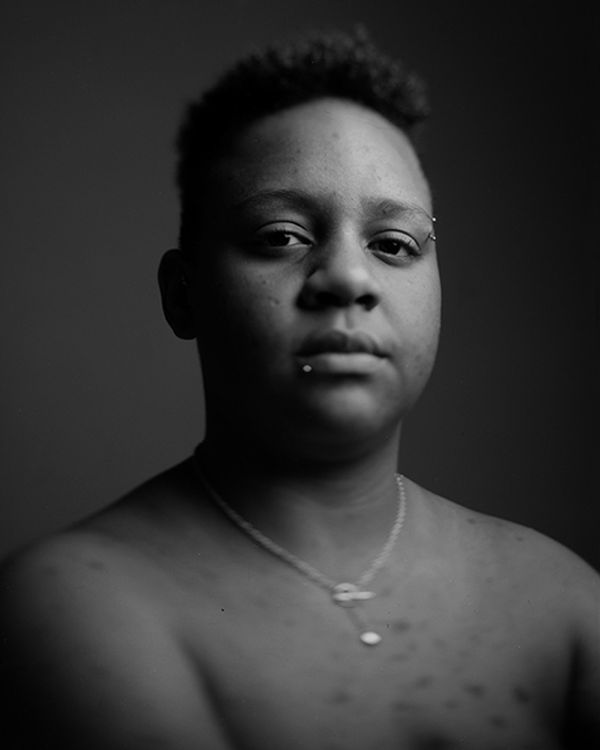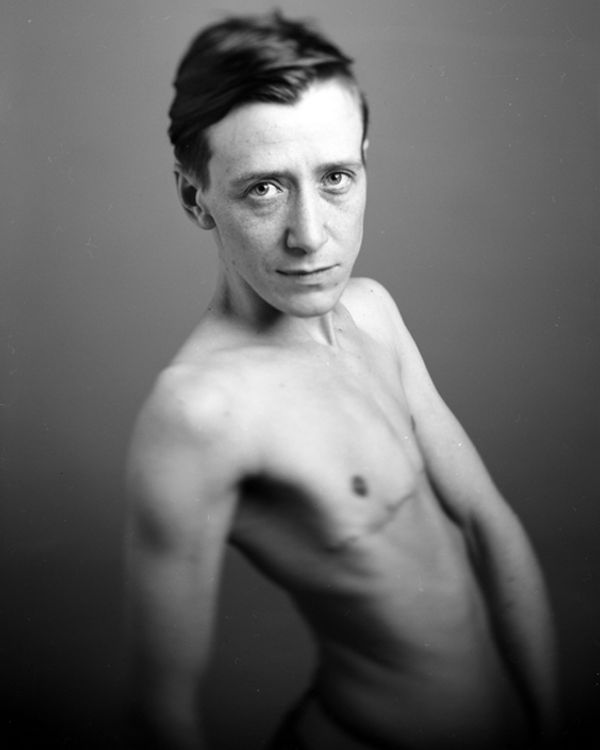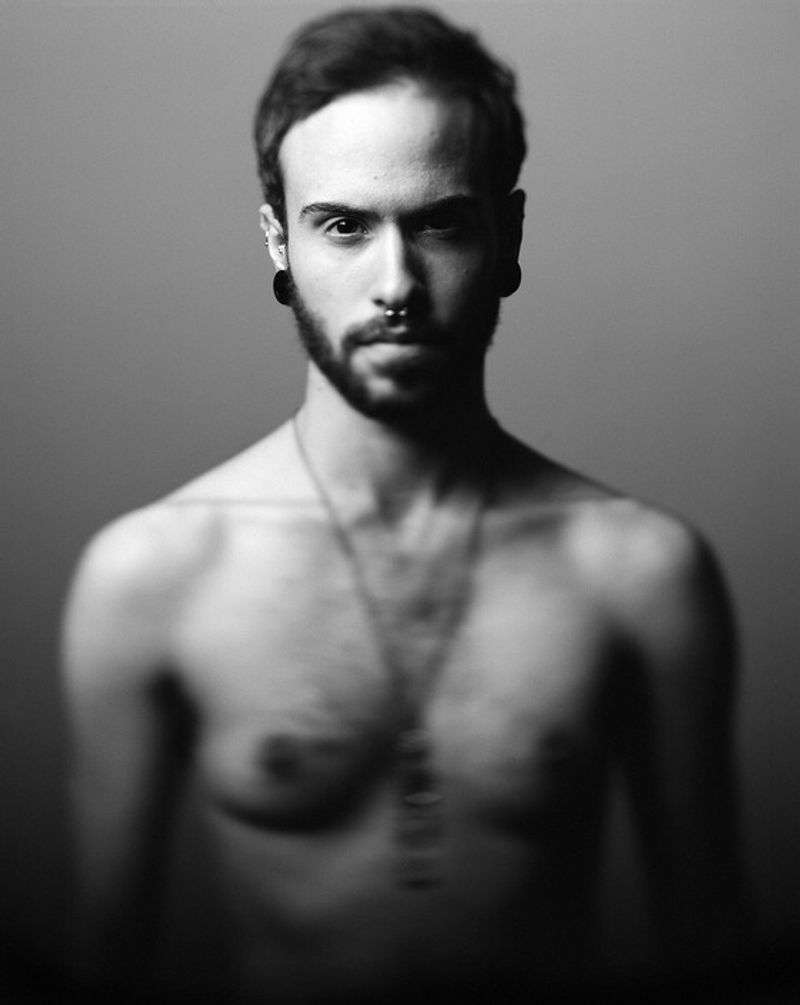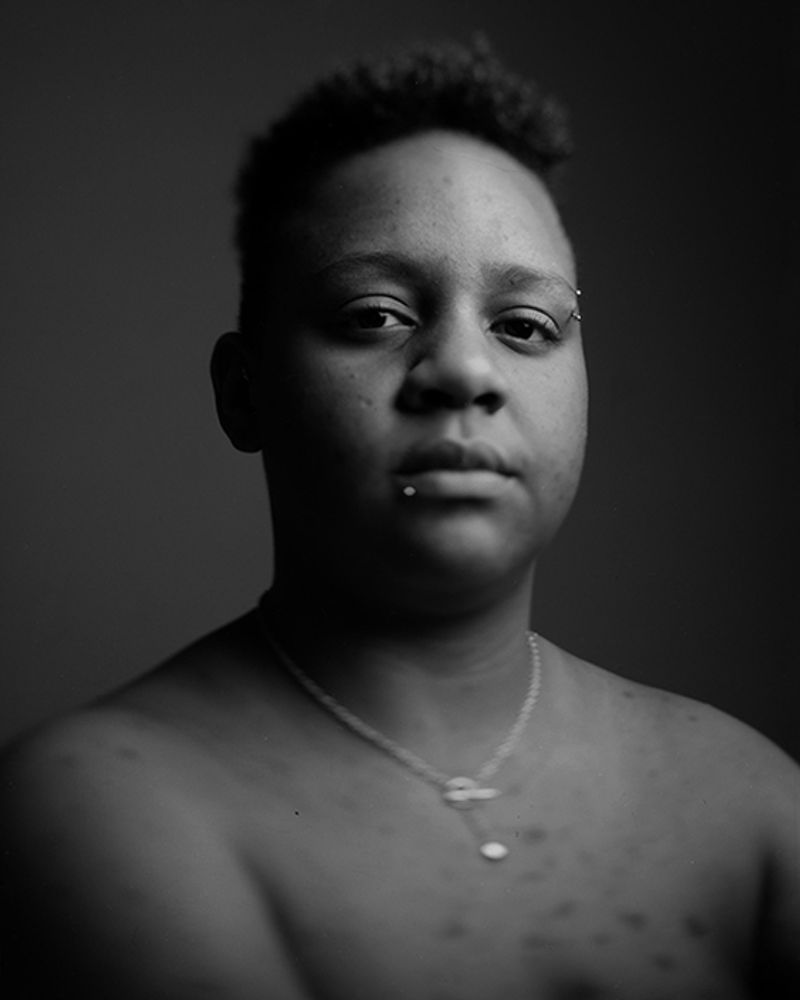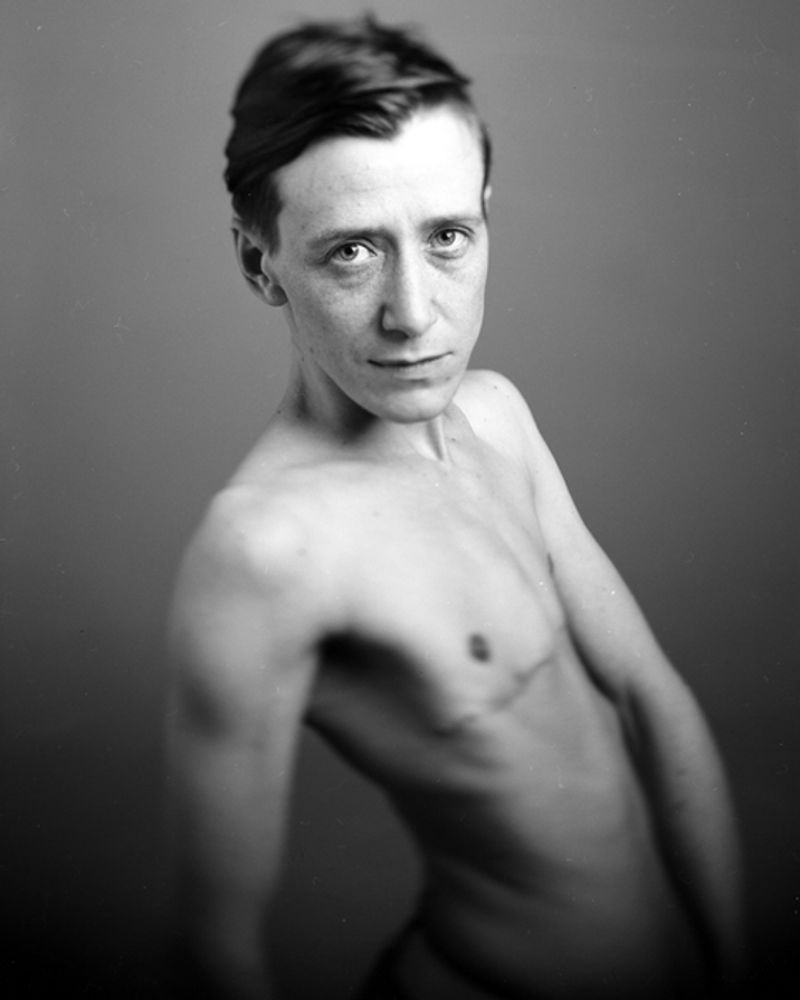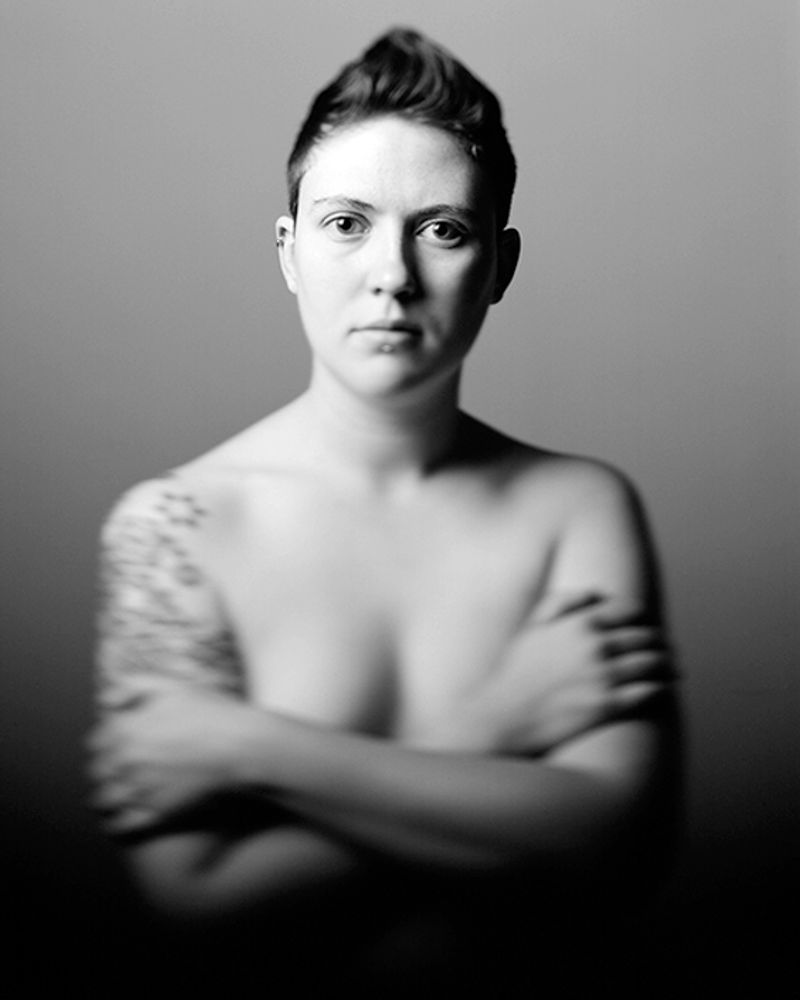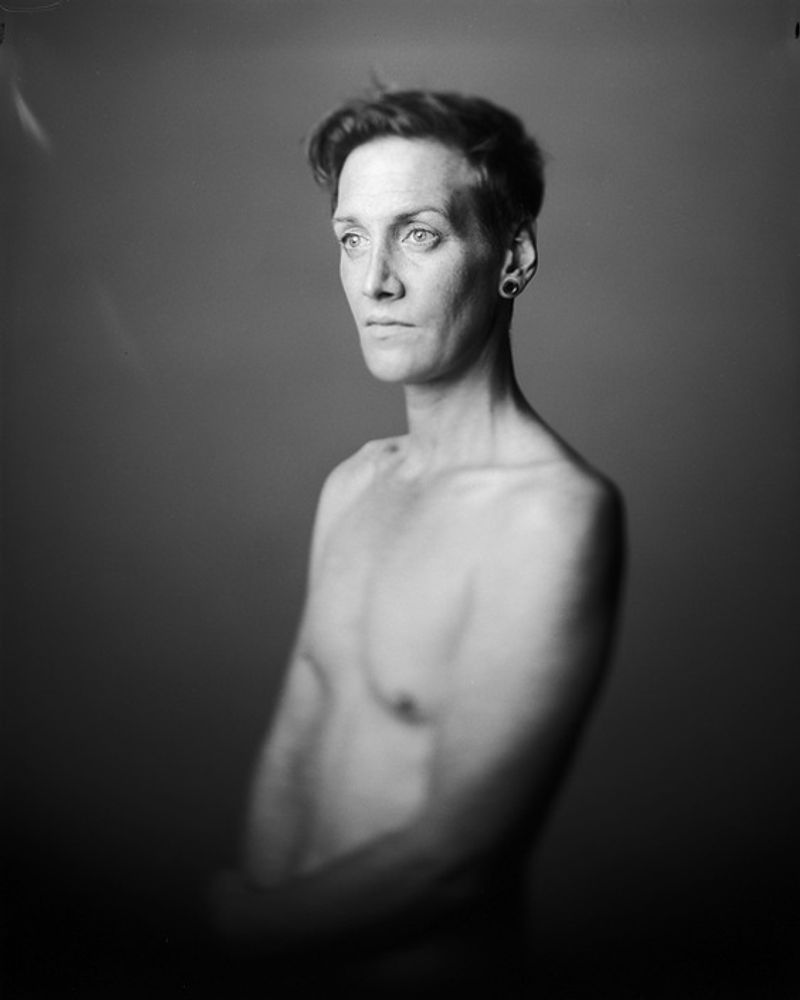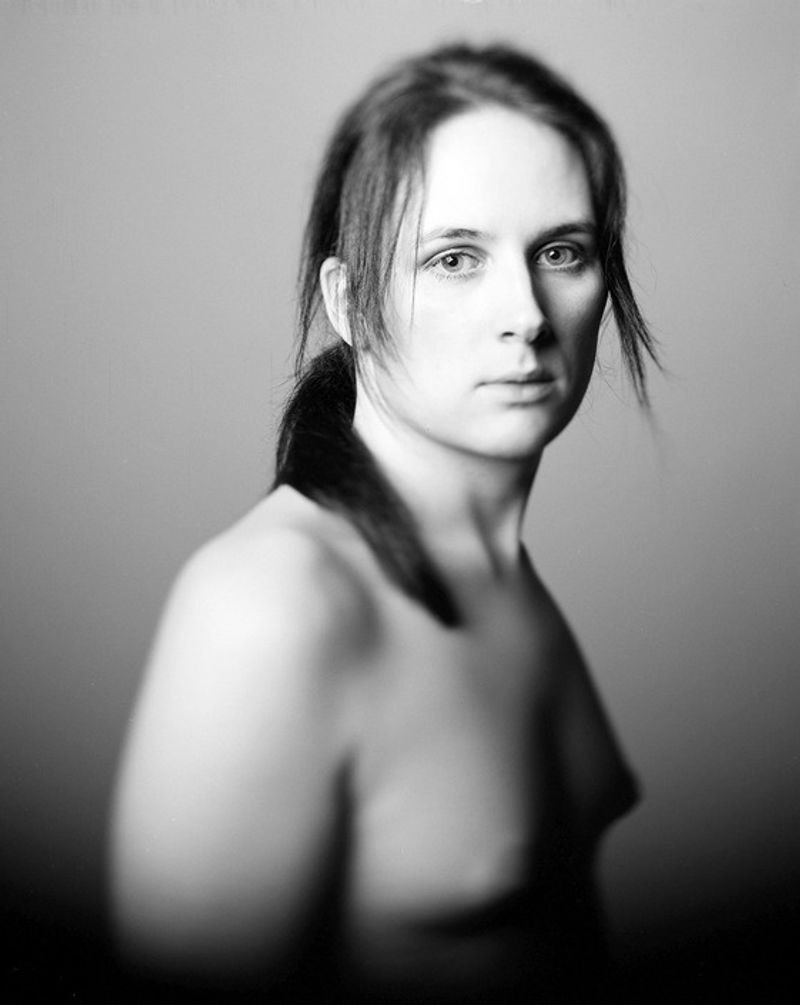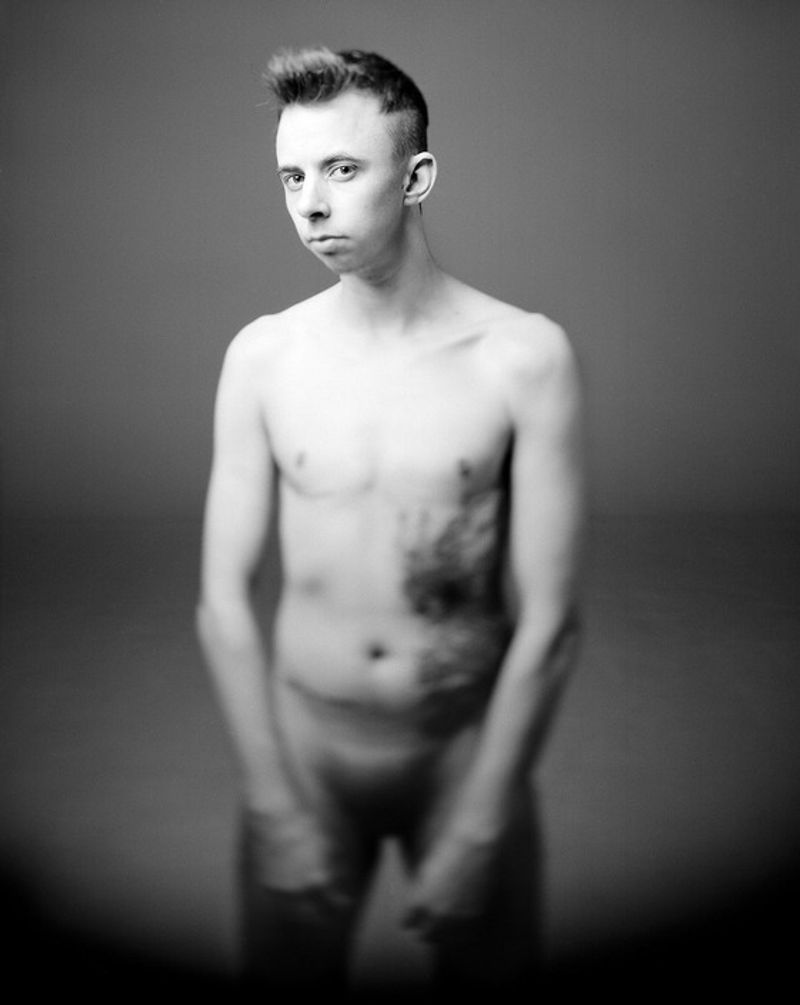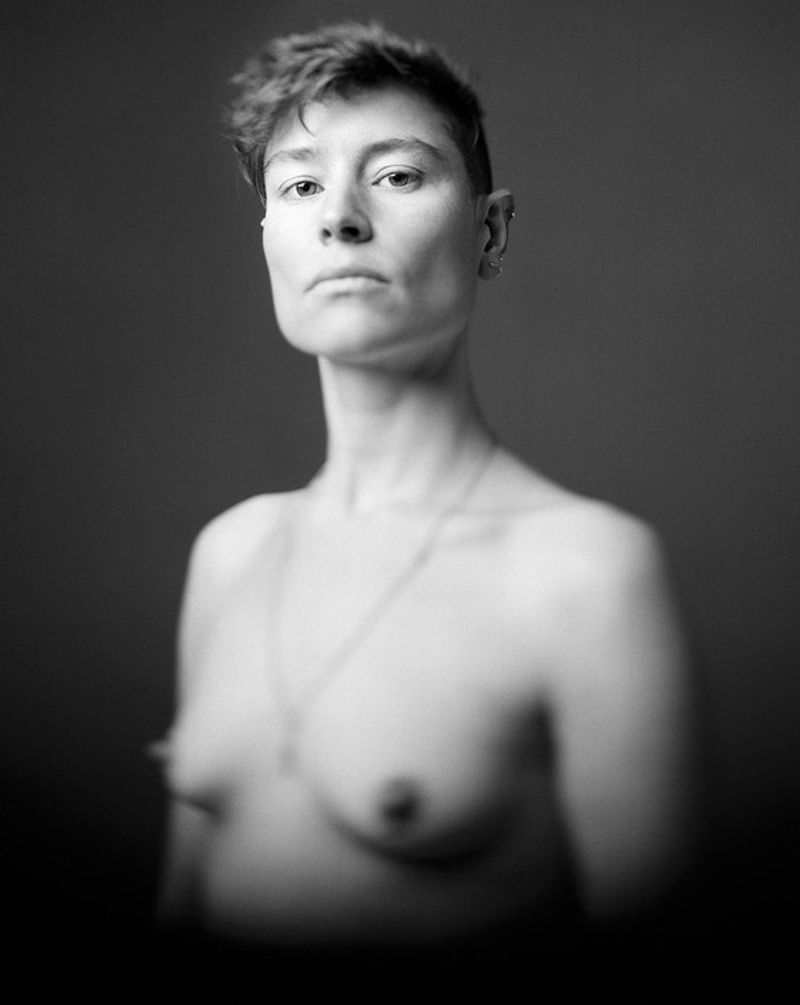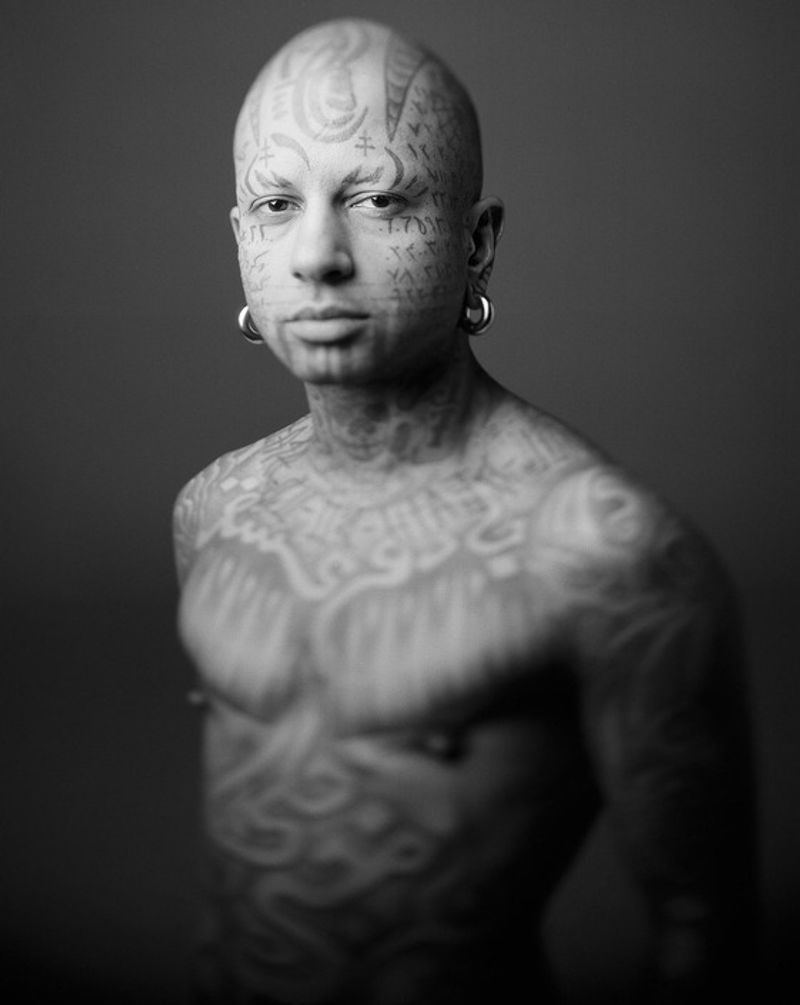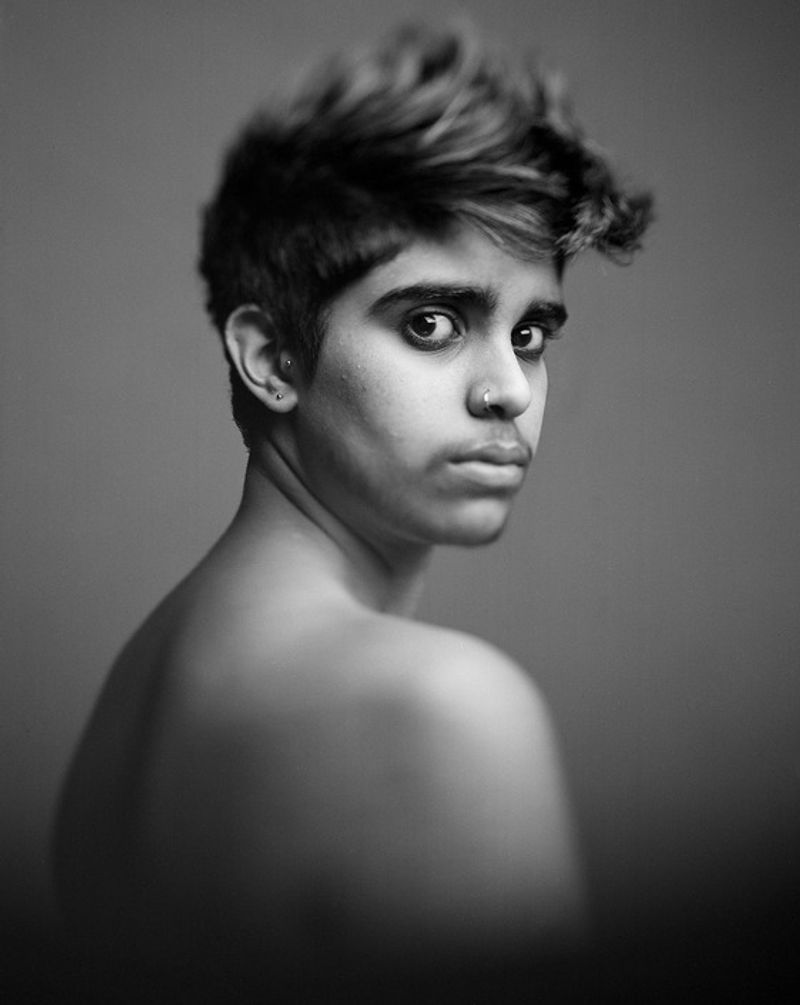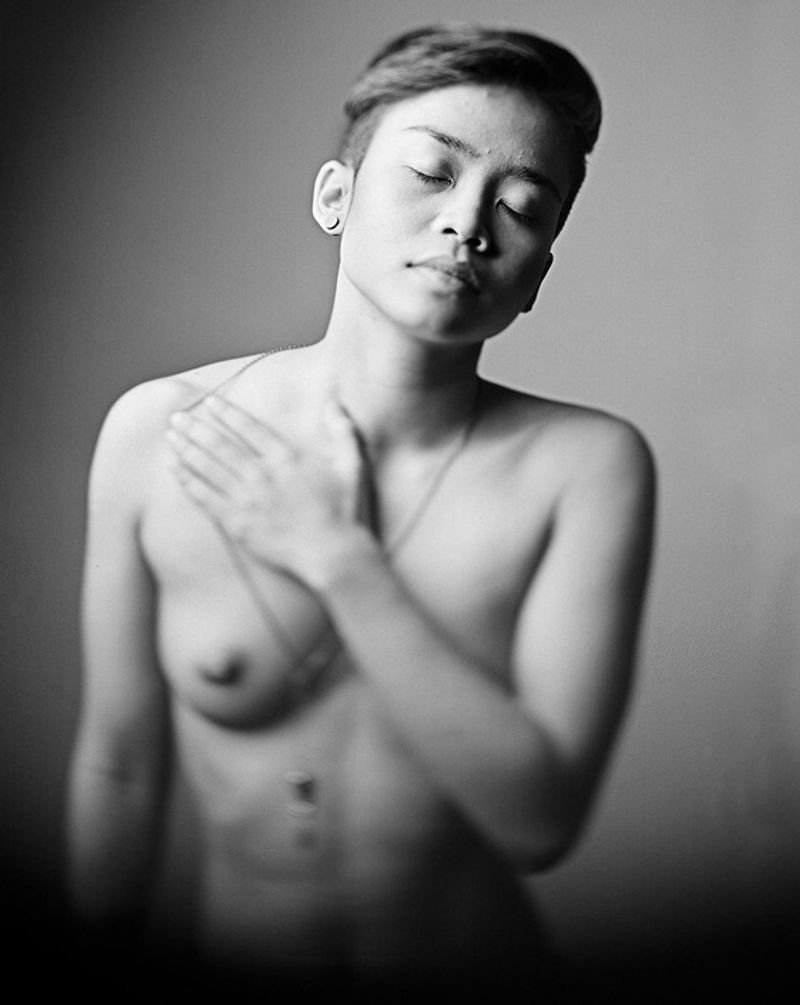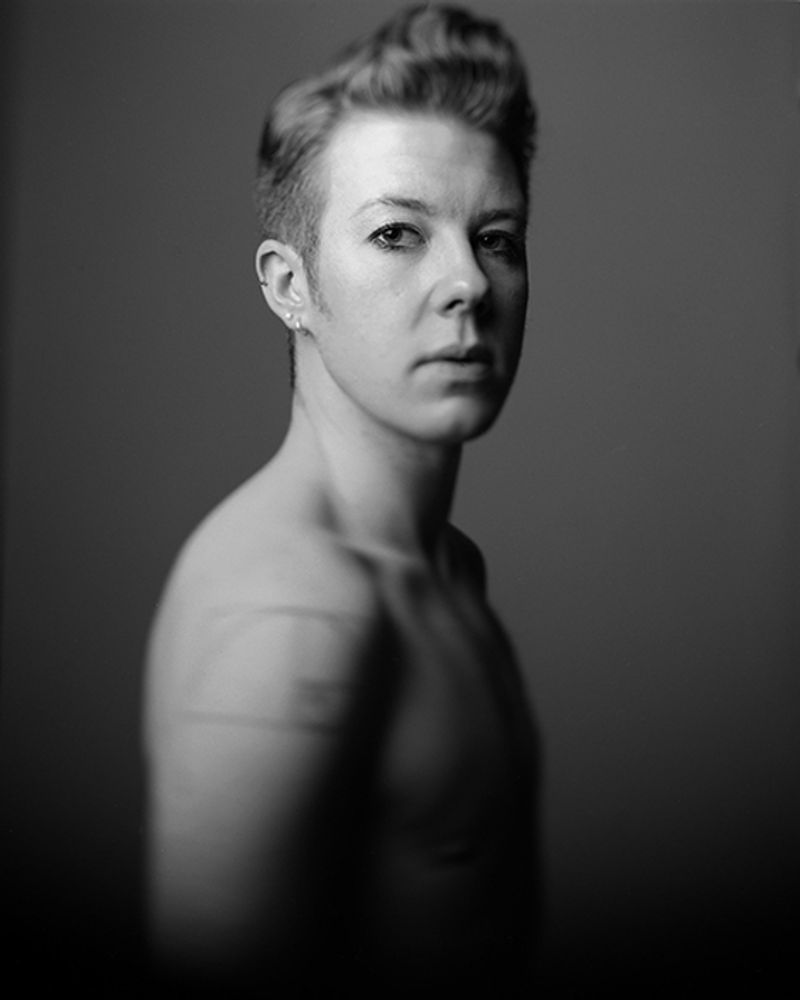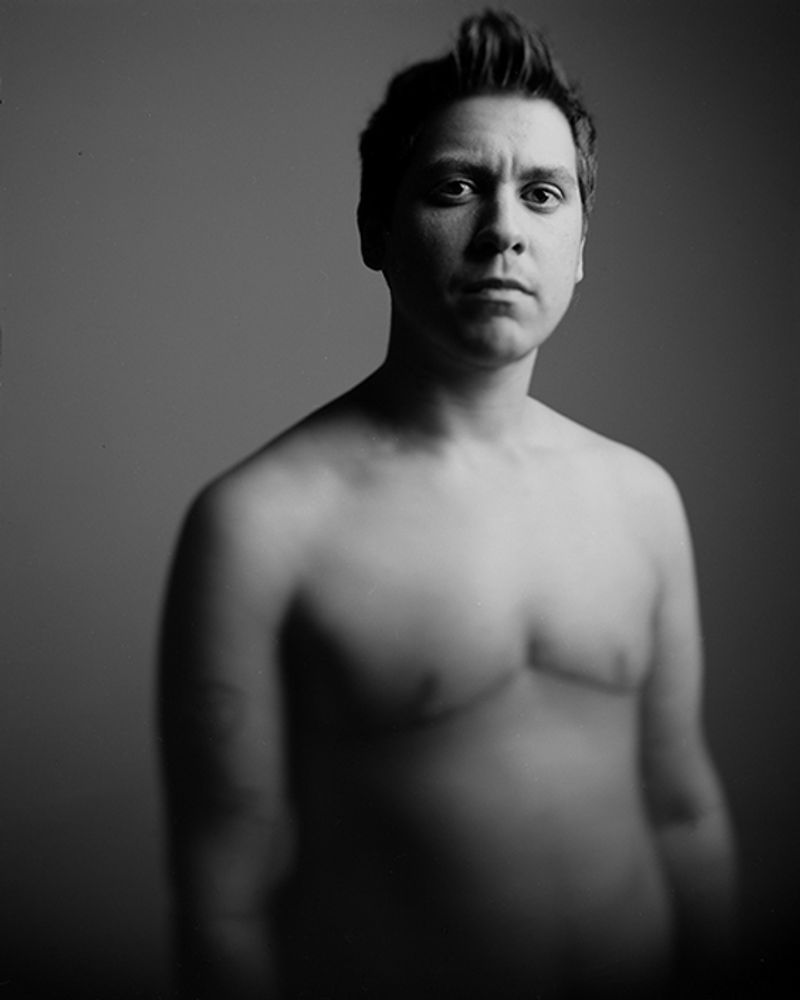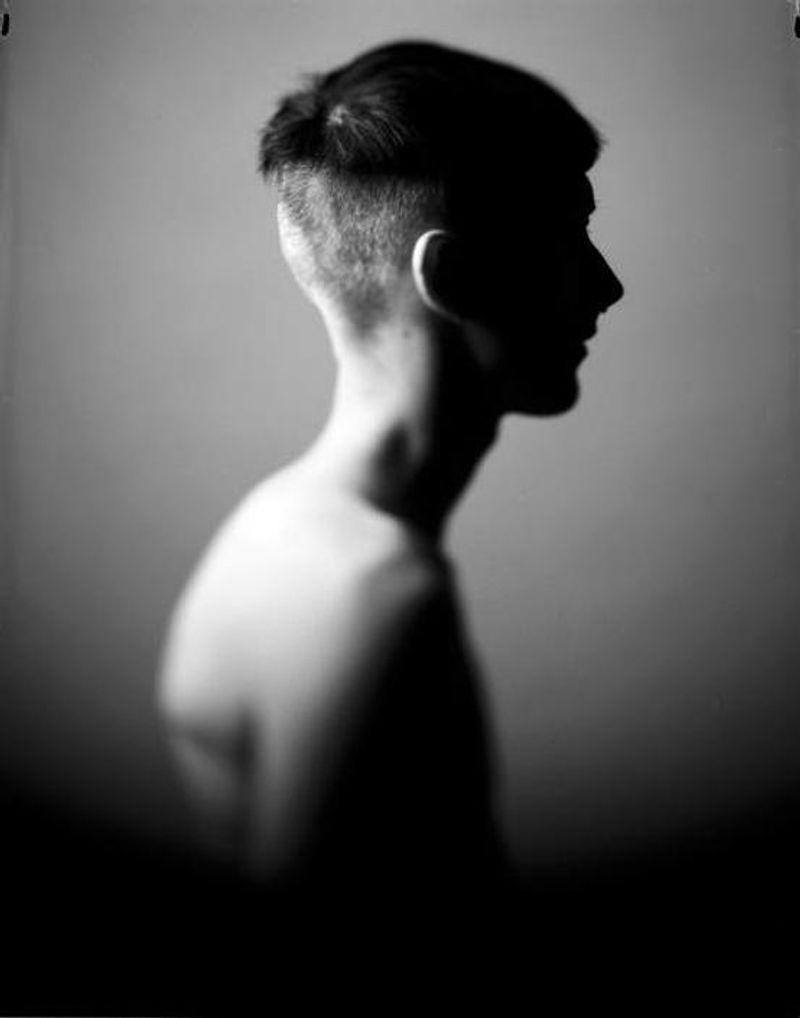Anima Animus
-
Dates2015 - Ongoing
-
Author
- Topics Portrait, Studio, Fine Art
- Location City of London, United Kingdom
Anima Animus is a long term project exploring the borderline of gender.
Anima Animus is a long term project exploring the borderline of gender.
The first part of this project is a series of black and white portraits of trans* and genderqueer people living in the UK.
Each model has undertaken a journey, transitioning from the sex they were assigned at birth to the gender they identify with.
All portraits have been shot on film with a large format camera, taking advantage of the Scheimpflug principle to narrowly focus on the models' eyes.
This stylistic choice is a visual response to the media's tendencies to only focus on trans* people bodies, virtually erasing their identities.
"I think trans representation in the media focuses only on the medical steps of transition, like the hormones therapy and the surgeries.
There’s a general fixation on genitals because for most people, the heteronormative kind of population, that’s what it comes down to, defining people according to what’s between their legs, so there’s not real emphasis on trans psychological well being and the gender spectrum.
There’s a general fixed belief that trans people are all “born in the wrong body” and they need to match their brain with their physical self."
Sabah, a trans genderqueer person, from our interview
Each portrait session is preceded by an interview and I'm currently collaborating with the models to create a series of statements about their lives, with a particular emphasis on how it is to be a gender non conforming person in the UK today.
"At the moment most people in the UK are quite ignorant regarding gender, but I believe it’s the kind of thing that society becomes gradually more used to.
Most gay people are now accepted by most parts of society in this country, while 20, 30 years ago it was a completely different story.
Hopefully in 20 years time, trans and gender non conforming people will have the same kind of recognition and acceptance that gay people are experiencing now."
Caz, a genderqueer person, from our interview
The project is still ongoing and currently I'm specifically trying to include more trans women and intersex people because I believe that they're often misrepresented in the media.
"When I look at the media's depiction of trans women I try not to be upset because otherwise I’d be upset all the time and that’s not worth my time.
On the other hand, I don’t feel that the media is completely bad and I think they are getting better because they realise they can’t get away with it anymore.
Things are moving in the right direction and I do believe that certainly in my lifetime we’ll make it to a point where trans people are in a much, much better place. It won’t happen without a fight, but there are things worth fighting for."
Sophie, a trans woman, from our interview
I’m also photographing cisgender people (individuals whose gender identity matches the sex they were assigned at birth).
Cisgender people are considered the norm when it comes to gender identity.
While transgender people often have to explain their gender identity and answer questions about it, cisgender people are not under any sort of pressure to do the same.
I’m interested in reversing this tendency, making people reconsider notions that are usually taken for granted.
"I think that most people like very straightforward labels to navigate the world and one of the reasons that progress has been made it’s because these old boundaries are falling and people are a lot less hasty to pigeon-hole others. Being prejudiced and judgmental is hard wired in the human psyches and culture and evolution is very slow, but we’re getting somewhere."
Tyuja, a person somewhere close to the middle of the gender spectrum, in our interview
In the end I aim to create a series of photographs to illustrate a collaborative body of work that analyses gender, representing people along the whole spectrum and reporting their points of view.
